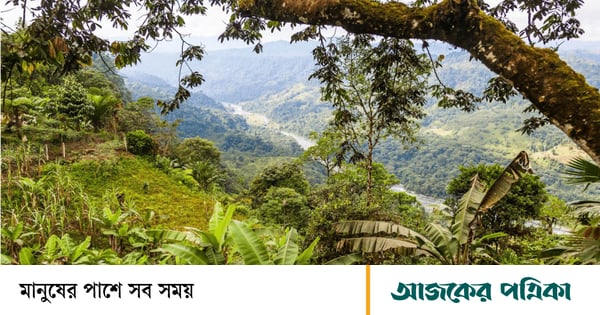The ownership of the music should be given to the forest. An organization in the Central American country of Ecuador has filed an RG in the court with such a claim. Basically this RG has been filed with the aim of acknowledging the contribution of nature in artistic creation in human society. This information is known from the report of Qatar-based media Al-Jazeera.
Environmental organization More than Human Life or Moth said this RG to the court. According to the RG, Ecuador's forest 'Los Cedars' should be recognized as co-creators of the melody or music. The area of this forest in Ecuador is about 15 thousand acres. The proposal is an initiative to legally recognize the role of nature in creativity. Which could set a new precedent in environmental and copyright law.
The More Than Human Life (MOTH) petition highlights the importance of promoting the rights of humans and other elements of nature. The petition calls for official recognition of Los Cedars Forest as co-author or co-creator of the 'Song of the Cedars'. The song was co-written by composer Cosmo Sheldrake, writer Robert McFarlane and mycologist Juliana Fursi of the Fungi Foundation. The Fungi Foundation is an American environmental conservation organization.
In an interview with UK's The Guardian newspaper, McFarlane said, 'Forests and rivers were integral to the whole process of writing this song and everything involved. We became a moving part of that forest for a short time and without the help of the forest this song would not have been written. Bon wrote this song with us.'
Earlier, Ecuador adopted a new constitution in 2008 under the leadership of former President Rafael Correa. At that time the special rights of natural areas were established. Ecuador was one of the first countries to recognize the inalienable right of an ecosystem.
According to Articles 10 and 71-74 of the Constitution of Ecuador, the rights of nature are—1. Nature, known in Ecuador as 'Pachamama'—where life originates, where life is maintained—has the right to maintain its existence, ecosystem, structure, function, and evolutionary process. 2. Nature has a right to recovery. This recovery does not depend on natural and legal persons or the state, but the process is inherent in nature. 3. The State shall take precautionary and regulatory measures against any activity which may cause extinction of any species, destruction of ecosystem or permanent alteration of natural cycle. 4. And people, communities and ethnic groups will have the right to benefit from the environment and natural resources.
Earlier, in 2021, Ecuador's Constitutional Court declared the right to be a 'personal entity' in nature. At that time Los Cedars was declared a biological entity. In addition, in 2014 a New Zealand court declared the Te Orewera forest to be 'above and beyond human ownership and to have its own right and legal personality'.
Subsequently, in 2017, mountains in New Zealand were also declared legal entities. Similar rights are granted to the country's Whanganui River. Not only New Zealand, Bangladesh also declared all rivers in the country as 'biological entities' in 2019. This announcement was implemented after a directive from the High Court of Bangladesh.

